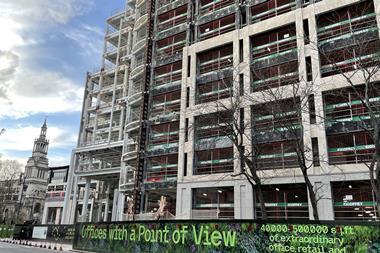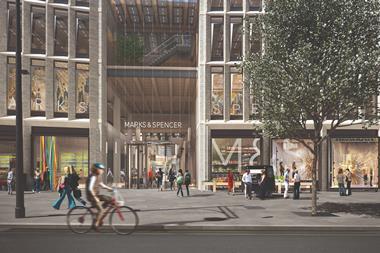I want to be sanguine about the ongoing political omnishambles, but I’m struggling.

As we gear up for a pre-Christmas general election and ponder whether the latest deadline for Brexit will be any more meaningful than the last two, we must brace ourselves for further fallout socially, economically and, inevitably, in the property market.
The latest Brexit delay may prove to be the straw that broke the camel’s back for some. It is hard to see the recent spike in the number of companies struggling to keep their heads above water or going under as mere coincidence.
As promised, this week we reveal the findings of a three-month investigation into WeWork and its talismanic former leader Adam Neumann. We commissioned exclusive data and spoke to former employees, senior agents and a forensic accountant in our efforts to interrogate the business model and ask whether it is fit for purpose.
It would be an overstatement to suggest Brexit has played a significant role in the global behemoth’s fall from grace, but WeWork leases rather than owns most of its space in the UK – and on a longer-term basis than most; it faces huge competition, particularly in the capital; and it is resorting to pretty desperate tactics to secure members. None of this bodes well against the backdrop of the never-ending Brexit story, especially if we are heading for a recession.
Ominously, WeWork is far from the only flexible workspace provider that has found itself in financial dire straits recently. In August, The Clubhouse fell into administration after failing to make payments on its loans or raise fresh equity (PropertyWeek.com). It was bought out of administration last month by IWG, which is now poised to do the same with Central Working, a business that fell on hard times because of “historically low occupancy levels and a failure to obtain additional funding”, according to the administrator. It was also reported this week that Second Home, the co-working space run by a former aide to David Cameron, is looking for new funding and faces a cash crunch.
I don’t know about you, but I am detecting a theme here. Given the insatiable appetite for cash and the questionable robustness of the flexible workspace model in a downturn, there will be further casualties in the sector yet.
Pity those exposed to sectors already in deep trouble, such as retail. To add to an already long list of casualties, Links of London has now gone under, as has family building firm and developer Simons Group, which specialised in retail, healthcare and commercial projects, and succumbed after encountering “unsustainable cashflow difficulties”. A source close to the latter claims it lost out on circa £50m of contracts due to Brexit uncertainty.
“It feels a bit like it did around 2008,” he adds – words that will send shivers down people’s spines.
Best of the decade
As we approach the end of the decade, Property Week is calling on readers to cast their minds back not quite that far, but to 2010 and the 10 years since.
We want you to nominate your top deals, schemes and people of the decade. All you need to do is tell us in a few words why you have nominated them. In December, we will reveal the top 10 in each category – as voted for by you. So put those thinking caps on and get nominating….































No comments yet